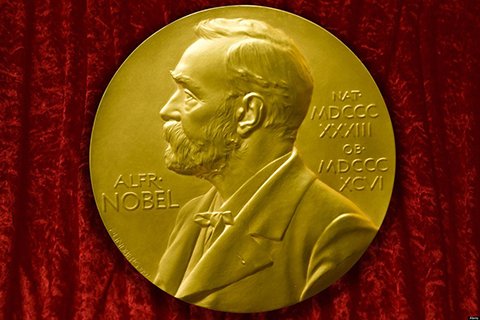Nobel Laureates
The Nobel Prize is awarded for achievement in chemistry, economics sciences, literature, peace, physics, and physiology or medicine.
Faculty
John Bardeen
Faculty member 1938-45
Nobel Prize in Physics, 1956 and 1972
Bardeen shared the honor with William B. Shockley and Walter H. Brattain (Physics Ph.D. ’29) for their invention of the transistor. Together with Leon N. Cooper and John R. Schrieffer, he won the 1972 prize for developing the theory of superconductivity.
Arthur H. Compton
Faculty member 1916-17
Nobel Prize in Physics, 1927
Compton was honored (along with C.T.R. Wilson of England) for his discovery and explanation of the “Compton effect,” the change in X-ray wavelength when they collide with electrons in metals.
William N. Lipscomb
Faculty member 1946-59
Nobel Prize in Chemistry, 1976
Lipscomb was honored for his research on the structure and bonding of boron compounds and the general nature of chemical bonding.
John H. Van Vleck
Faculty member 1924-28
Nobel Prize in Physics, 1977
Van Vleck was honored (with Philip W. Anderson and Sir Nevill F. Mott) for his contributions to the understanding of the behavior of electrons in magnetic, noncrystalline solid materials.
Alumni
Walter Brattain
(Physics Ph.D. ’29)
Nobel Prize in physics, 1956
Brattain, John Bardeen, and William B. Shockley were honored for the development of the transistor.
Melvin Calvin
(Chemistry Ph.D. ’35)
Nobel Prize in chemistry, 1961
Calvin was honored for his discovery of the chemical pathways of photosynthesis.
Ernest O. Lawrence
(Physics M.A. ’23)
Nobel Prize in Physics, 1939
Lawrence was honored for his invention of the cyclotron, the first particle accelerator to achieve high energies.
Daniel McFadden
(Physics ’57, Behavioral Sciences Ph.D.’62)
Nobel Prize in Economic Sciences, 2000
McFadden was honored for his development of theory and methods for analyzing discrete choice.

